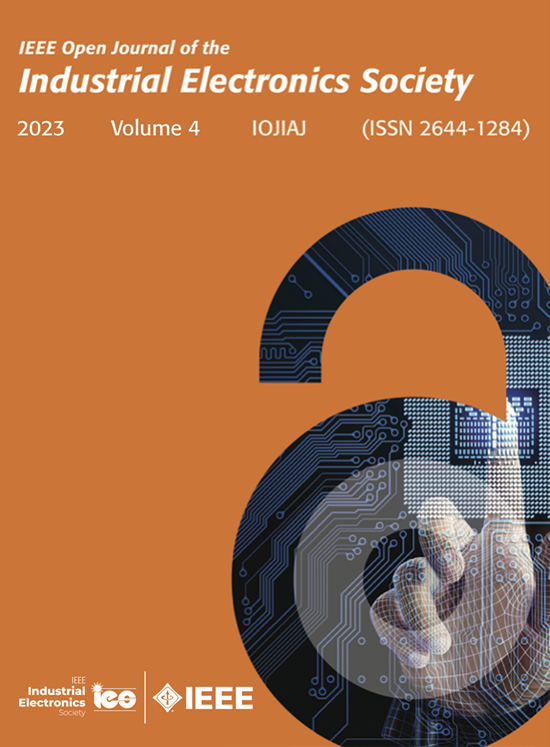Hierarchical Fuzzy Framework for EV Supported Islanded Microgrid Frequency Stabilization
IF 5.2
Q1 ENGINEERING, ELECTRICAL & ELECTRONIC
IEEE Open Journal of the Industrial Electronics Society
Pub Date : 2024-07-04
DOI:10.1109/OJIES.2024.3421669
引用次数: 0
Abstract
This article delves into the intricate challenge of frequency stabilization within islanded microgrids (IMGs), particularly exacerbated by the integration of low-inertia renewable power generations. A hierarchical control strategy is proposed, comprising a fuzzy rule-based controller, a two-degree-of-freedom fractional-order PI controller, and a proportional resonant controller. The bolstering of frequency stabilization is achieved by the integration of aggregated electric vehicle storage into the IMG. Adaptive tuning of the fuzzy rule-based load frequency controller's parameters is facilitated by a novel quasi-oppositional prairie dog technique (QOPDT), developed within this study. A comprehensive comparison is conducted between the efficacy of the QOPDT technique and various other optimization methods. Significant improvements in system frequency stability across diverse scenarios are observed with the adoption of the QOPDT-based controller, as evidenced by qualitative assessment. Furthermore, the investigation extends to consider the impact of time-varying delay on the integrated electric vehicle system, broadening the scope of the investigation. Validation of the effectiveness and practicality of the proposed control framework is undertaken utilizing the real-time OPAL-RT 5700 testbed platform.电动汽车支持的岛式微电网频率稳定分层模糊框架
本文深入探讨了孤岛微电网(IMGs)内频率稳定的复杂挑战,尤其是低惯性可再生能源发电的集成加剧了这一挑战。文章提出了一种分层控制策略,包括基于模糊规则的控制器、二自由度分数阶 PI 控制器和比例谐振控制器。通过将聚合电动汽车储能集成到 IMG 中,实现了频率稳定的增强。基于模糊规则的负载频率控制器参数的自适应调整由本研究中开发的一种新型准位置草原犬技术(QOPDT)提供便利。对 QOPDT 技术和其他各种优化方法的功效进行了综合比较。定性评估结果表明,采用基于 QOPDT 的控制器后,不同情况下的系统频率稳定性都有显著改善。此外,研究还考虑了时变延迟对集成电动汽车系统的影响,扩大了研究范围。利用实时 OPAL-RT 5700 测试平台验证了建议控制框架的有效性和实用性。
本文章由计算机程序翻译,如有差异,请以英文原文为准。
求助全文
约1分钟内获得全文
求助全文
来源期刊

IEEE Open Journal of the Industrial Electronics Society
ENGINEERING, ELECTRICAL & ELECTRONIC-
CiteScore
10.80
自引率
2.40%
发文量
33
审稿时长
12 weeks
期刊介绍:
The IEEE Open Journal of the Industrial Electronics Society is dedicated to advancing information-intensive, knowledge-based automation, and digitalization, aiming to enhance various industrial and infrastructural ecosystems including energy, mobility, health, and home/building infrastructure. Encompassing a range of techniques leveraging data and information acquisition, analysis, manipulation, and distribution, the journal strives to achieve greater flexibility, efficiency, effectiveness, reliability, and security within digitalized and networked environments.
Our scope provides a platform for discourse and dissemination of the latest developments in numerous research and innovation areas. These include electrical components and systems, smart grids, industrial cyber-physical systems, motion control, robotics and mechatronics, sensors and actuators, factory and building communication and automation, industrial digitalization, flexible and reconfigurable manufacturing, assistant systems, industrial applications of artificial intelligence and data science, as well as the implementation of machine learning, artificial neural networks, and fuzzy logic. Additionally, we explore human factors in digitalized and networked ecosystems. Join us in exploring and shaping the future of industrial electronics and digitalization.
 求助内容:
求助内容: 应助结果提醒方式:
应助结果提醒方式:


